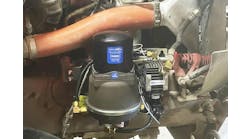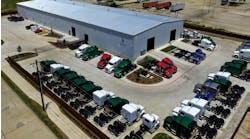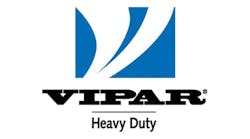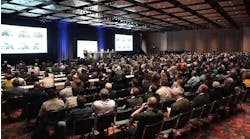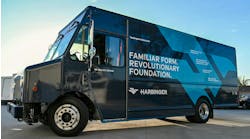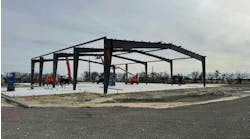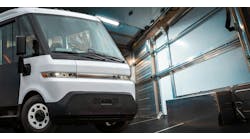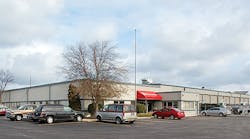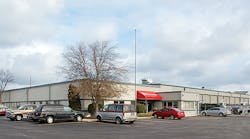Distributor credits diversification for making it through the downturn
Dean Phillips says the recession is over at Hoosier Trailer & Truck Equipment. And while the boom times may not be back, all of his employees are.
“We just hired six people,” says Phillips, president of the Fort Wayne, Indiana, company. “Everyone is back.”
That wasn't always the case at Hoosier, as the downturn took its toll on the company. But Hoosier didn't get hit quite as hard as some in the truck equipment business, in large part because of the diverse product lines and services that the company offers.
“We don't rely on any one thing,” Phillips says. “That makes the world go around for us. We made it through the worst of it, and now things seem to be turning up. Our customers are saying the same thing. They are seeing their business picking up, too.”
Diversification wasn't simply a strategy that the company threw into place in response to the downturn. Hoosier, now in its fourth decade of doing business, had already established itself in a variety of markets when the recession hit. Most of those markets were pulled down in the downturn, but not all at the same time, and not all of them were off sharply. The fact that the company was strong in service and repair helped cushion the loss of new business.
“We repair tanks, we have a body shop, and we do a lot of school bus work repairs. It's amazing what happens to school buses,” Phillips says. “We have been strong in the wreck repair business. Paint and body work held up well.
“The versatility of our shop has been key. We are a machine and fab shop. We service truck bodies and trailers. And we have a full parts department. We have two outside sales people who specialize in parts sales. By doing a little bit for everything, we have staying power.”
Tough times nothing new
The recent downturn is nothing new for Phillips, 50-year veteran of trailer and truck equipment cycles. Some of the cycles that Phillips has seen have come from market fluctuations in the market; others have been the result of changes in ownership.
“We sold the company in 1998,” Phillips says. “Ours was one of nine companies that were rolled up as part of a conglomerate. The owners soon discovered that the synergies that they thought they would achieve were not there. The downturn of 2002 finished them off.”
Phillips and his partner, Bob Jesse, bought the company back in 2002. Fortunately, the partners were able to rehire many of the employees who had made the company successful. They also were able to regain the confidence of their vendors and customers.
“When we bought Hoosier back, it was only doing 25% of the business it had been doing before we sold it,” Phillips says. “The first step in turning the company around back then was to regain the confidence of our vendors. We were able to get all but one of them to return. We did that by paying our vendors according to the terms we agreed upon. If we were making a large purchase and needed 60 days, we worked that out in advance with the vendor. When you do what you tell your vendors you will do, you win their respect.
“We also had to work to win back our customers. We phoned them, we mailed them, and we visited them personally. We had to assure them that Hoosier would conduct business they way we used to. Our efforts paid off — we regained their confidence, and we caught the business upswing that began in 2003.”
Mixing truck equipment, trailers
For most of its life, Hoosier primarily was a truck equipment distributor. But when Phillips joined forces with Hoosier in 1993, he brought extensive experience from his career with Fruehauf. With an influx of trailer expertise, the company was renamed Hoosier Trailer & Truck Equipment.
Today the company tackles a full range of repairs and modifications. Recent examples include making open-top trailers out of dry-freight vans, converting the rear doors from swing to roll-up, and mounting a van on top of a drop-deck trailer.
Two people work full-time in the fabrication department to produce the special parts for Hoosier's custom jobs. But the company has 8-10 technicians in the truck and trailer shop who can fabricate the parts they need for their area.
“We have some really skilled people,” Phillips says. “It makes layoffs that much tougher. We are glad to be back at full employment.
“This has been the biggest downward tick I have ever seen,” Phillips says. “But we are succeeding in an extremely tough market.”
